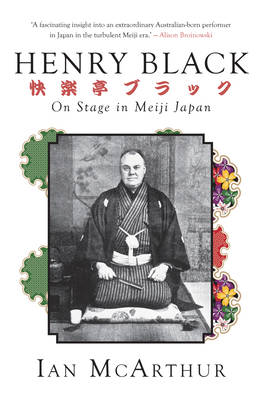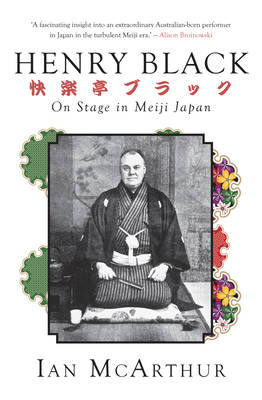
- Afhalen na 1 uur in een winkel met voorraad
- Gratis thuislevering in België vanaf € 30
- Ruim aanbod met 7 miljoen producten
- Afhalen na 1 uur in een winkel met voorraad
- Gratis thuislevering in België vanaf € 30
- Ruim aanbod met 7 miljoen producten
€ 38,45
+ 76 punten
Omschrijving
Unique among foreigners in nineteenthcentury Japan, Australianborn professional storyteller (rakugoka) Henry Black (1858-1923) enthralled audiences with his adaptations of novels by Charles Dickens, Mary Braddon and Fortuné de Boisgobey. These tales, later produced as books, brought notions of European modernity to many ordinary Japanese. Black also acted kabuki roles, managed an orchestra, performed magic and hypnotism, lived with his Japanese male lover, drank heavily, and practised tea ceremony. His voice was recorded for the London Gramophone Company on the first discshaped recordings made in Japan. In the 1870s Black joined the prodemocracy movement, promoting equal rights and an elected assembly. His later affiliation with the San'yu guild of storytellers, under the professional name of Kairakutei Burakku, enabled him to promote the movement's aims through his stories. He became a naturalised Japanese, and was shunned by his own family. This is the first fulllength Englishlanguage account of Henry Black. Translating Black's narrated adaptations and drawing on newspapers and diary entries, Ian McArthur demonstrates Black's individual contribution to the modernisation of Meijiera (1868-1912) Japan.
Specificaties
Betrokkenen
- Auteur(s):
- Uitgeverij:
Inhoud
- Aantal bladzijden:
- 240
- Taal:
- Engels
- Reeks:
Eigenschappen
- Productcode (EAN):
- 9781921867507
- Verschijningsdatum:
- 1/07/2013
- Uitvoering:
- Paperback
- Formaat:
- Trade paperback (VS)
- Afmetingen:
- 150 mm x 231 mm
- Gewicht:
- 476 g

Alleen bij Standaard Boekhandel
+ 76 punten op je klantenkaart van Standaard Boekhandel
Beoordelingen
We publiceren alleen reviews die voldoen aan de voorwaarden voor reviews. Bekijk onze voorwaarden voor reviews.










